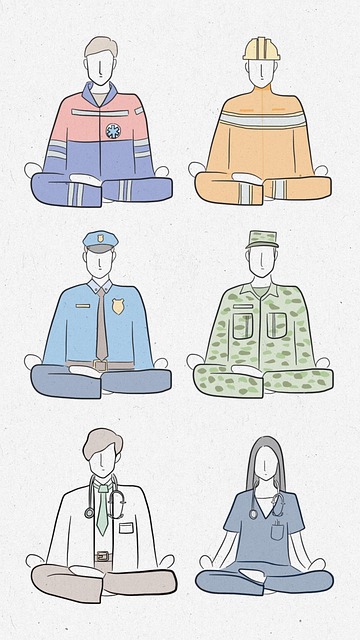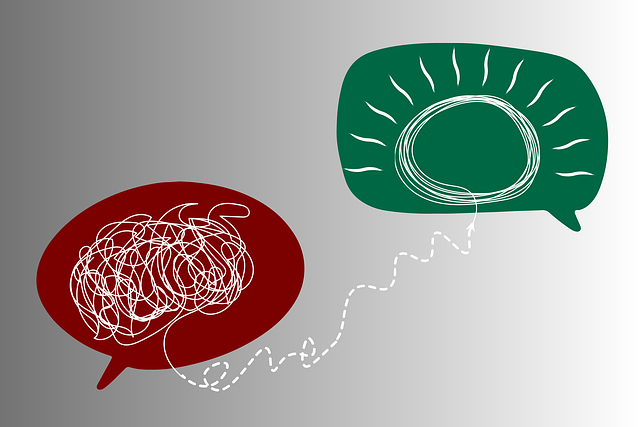The stigma surrounding mental illness among elders significantly hinders their access to necessary therapy, leading to delayed treatment and reduced care quality. To combat this, initiatives like podcast series, stress management workshops, and play therapy can promote positive thinking and create supportive environments. Play therapy, tailored for elders, offers a creative outlet for emotional expression, helping them effectively navigate their mental wellness journeys with respect and understanding. A multifaceted approach involving community outreach programs, education, and policy changes is crucial to reduce stigma and enhance access to therapy for elders.
Mental illness stigma remains a significant barrier to older adults seeking necessary mental health care. This article explores targeted strategies to reduce this pervasive issue. We delve into the profound impact of stigma on elders’ well-being and navigate effective solutions, including the unique benefits of play therapy tailored for this demographic. Additionally, we discuss community engagement efforts, education initiatives, policy advocacy, and their collective role in fostering a more accepting society that prioritizes mental health for all ages.
- Understanding Stigma and Its Impact on Mental Health Care for Elders
- The Role of Therapy in Challenging Stigmatizing Beliefs
- Play Therapy as a Unique Approach to Reduce Stigma Among Older Adults
- Community Engagement and Education: Building Awareness and Support
- Policy Changes and Advocacy: A Pathway to a More Understanding Society
Understanding Stigma and Its Impact on Mental Health Care for Elders

Stigma surrounding mental illness can have profound effects on elders’ access to and willingness to seek help for their psychological well-being. This age group often faces unique challenges, such as societal expectations that emphasize resilience and self-reliance, which may discourage them from discussing their emotional struggles openly. The impact of stigma can lead to delayed treatment, reduced quality of care, and even avoidance of necessary therapy for elders.
Understanding the role of stigma is crucial in developing effective strategies to reduce its effects. Through initiatives like Mental Wellness Podcast Series Production and Stress Management Workshops Organization, we can foster positive thinking and create supportive environments. Play therapy, tailored for elders, offers a creative outlet for expression and a means to explore complex emotions. By addressing stigma head-on, we enable better mental health care, ensuring that elders receive the respect, understanding, and appropriate therapy they need to navigate their mental wellness journeys effectively.
The Role of Therapy in Challenging Stigmatizing Beliefs

Stigma reduction is a multifaceted approach, and therapy plays a pivotal role in challenging and reshaping societal beliefs about mental illness. In particular, play therapy for elders has emerged as an effective tool to combat ageist stereotypes and promote understanding. Through interactive and creative sessions, therapists can help older adults explore and express their emotions, fostering a sense of self-awareness and acceptance. This process encourages them to question and reframe stigmatizing beliefs they may have internalized over time.
Furthermore, community outreach programs that incorporate therapy sessions can significantly boost confidence levels among individuals dealing with mental health issues. By providing a safe space for open dialogue, these programs facilitate the exchange of personal experiences and encourage empathy. Effective communication strategies, taught and reinforced during therapy, enable participants to articulate their needs and dispel myths about mental illness in their communities.
Play Therapy as a Unique Approach to Reduce Stigma Among Older Adults

Play Therapy offers a unique and innovative approach to reduce the stigma associated with mental illness among older adults. By incorporating playful activities and creative expression, this therapy provides a non-threatening space for elders to explore and express their emotions. Unlike traditional talk therapy, which can be intimidating or challenging for some individuals, Play Therapy leverages natural behaviors and interests to facilitate healing. This method is particularly beneficial as it helps break down barriers and promotes open communication about mental health concerns.
Through interactive games, art, music, and movement, older adults engage in therapeutic activities that foster self-awareness and emotional regulation. The use of play also allows them to reconnect with their inner child, offering a sense of comfort and nostalgia. Moreover, Play Therapy sessions can incorporate specific communication strategies tailored for this demographic, encouraging participants to share their experiences and insights in a supportive environment. Additionally, promoting mental wellness through journaling exercises or developing coaching programs specifically designed for older adults can further enhance these efforts, ensuring ongoing support for their mental wellness journey.
Community Engagement and Education: Building Awareness and Support

Community engagement and education are powerful tools in the fight against mental illness stigma. By bringing people together, we create a supportive environment where understanding and empathy can flourish. Public talks, workshops, and community events focused on mental health raise awareness, dispel myths, and offer valuable insights into various conditions. These platforms encourage open conversations, fostering a sense of normalcy around mental health issues.
Targeting specific demographics like the elderly through tailored therapy sessions or play therapy initiatives can significantly impact stigma reduction. Incorporating emotional intelligence and emotional well-being promotion techniques in these programs equips individuals with coping strategies, enhances their overall resilience, and reduces the fear associated with seeking help. Additionally, teaching conflict resolution techniques within these community settings encourages healthy interactions and supportive networks, further strengthening the mental health support system.
Policy Changes and Advocacy: A Pathway to a More Understanding Society

Policy changes and advocacy play a pivotal role in reducing the stigma surrounding mental illness, especially among older adults. By implementing laws that protect individuals with mental health conditions from discrimination, we can foster an environment that encourages open conversations and access to much-needed therapy for elders. This includes supporting initiatives that integrate mental wellness into primary healthcare systems, ensuring that older adults receive comprehensive care alongside their physical health treatments.
Advocacy also amplifies the importance of Mind Over Matter principles, highlighting the power of self-esteem improvement and positive mindset shifts in managing mental health. Through Mental Wellness Podcast Series Production, we can educate and inspire folks to normalize conversations about mental illness, breaking down barriers and promoting understanding at every level of society.
Mental illness stigma reduction is a multifaceted approach that includes understanding its impact, challenging beliefs through therapy, employing unique methods like play therapy for older adults, engaging communities through education, and advocating for policy changes. By integrating these strategies, we can foster a more supportive society where elders receiving therapy for mental health issues are met with empathy and understanding, ultimately enhancing their well-being.










